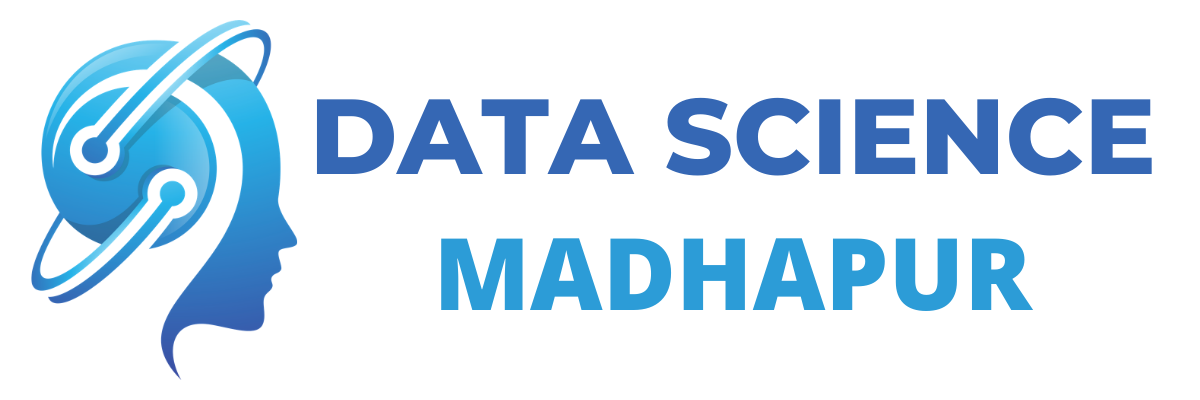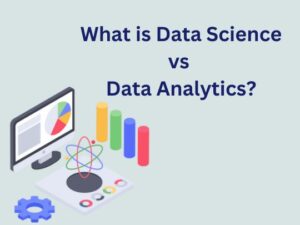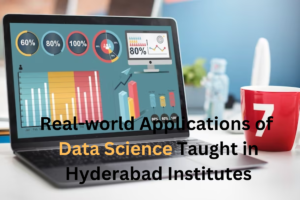Data scientist is not inherently a government job, but data scientists can be employed by government agencies or organizations. The role of a data scientist involves analysing and interpreting complex data sets to extract meaningful insights and inform decision-making processes. This skill set is valuable in various sectors, including government, where data-driven decision-making is becoming increasingly important.
Government agencies and departments often have large amounts of data that they need to analyse to inform policy development, evaluate program effectiveness, or address societal challenges. Data scientists can play a crucial role in these organizations by applying their expertise in statistical analysis, machine learning, and data visualization to extract insights from the available data.
However, it’s important to note that data scientists are employed in a wide range of industries beyond the government sector. They can work in private companies, research institutions, non-profit organizations, healthcare, finance, and many other fields where data analysis and interpretation are required.
Data Scientists in Government:
Government agencies and departments employ data scientists to leverage the power of data and analytics for informed decision-making. The responsibilities of data scientists in the government sector can vary depending on the specific organization and its objectives. They may work on projects related to public health, transportation, urban planning, criminal justice, economic analysis, or social services, among others.
Policy Development and Evaluation: Data scientists in government can contribute to policy development and evaluation by analysing relevant data. They can identify patterns, trends, and correlations within the data that inform the formulation of evidence-based policies. Furthermore, they can evaluate the impact and effectiveness of existing policies through rigorous data analysis and modelling.
Data-Driven Decision Making: Government agencies increasingly rely on data to make informed decisions. Data scientists play a vital role in this process by collecting, cleaning, and analysing data to extract actionable insights. By employing statistical techniques, machine learning algorithms, and data visualization tools, they help government officials understand complex data sets and make evidence-based decisions.
Predictive Modelling and Forecasting:
Data scientists in government may develop predictive models and forecasting algorithms to anticipate future trends or outcomes. For instance, they can analyse demographic data to predict population growth, employ econometric models to forecast economic indicators, or use machine learning algorithms to predict disease outbreaks. These predictive capabilities assist in resource allocation, disaster planning, and risk management.
Also, check this Best Data Science course, to start a career in Best Data Science in Chennai.
Data Security and Privacy: Government agencies handle vast amounts of sensitive data, and ensuring data security and privacy is of utmost importance. Data scientists working in the government sector must adhere to strict protocols and regulations to protect confidential information. They employ encryption techniques, anonymization methods, and other security measures to safeguard data integrity and privacy.
Learn the core concepts of Data Science Course video on Youtube:
Collaboration and Interdisciplinary Work:
Government data scientists often collaborate with other professionals, such as policy analysts, economists, social scientists, and domain experts. Interdisciplinary collaboration is essential to address complex societal issues effectively. Data scientists bring their technical expertise to the table while collaborating with stakeholders to understand the context, requirements, and constraints of government initiatives.
Ethical Considerations: Data scientists in government face ethical considerations in their work. They must ensure that their data analysis and models are unbiased, fair, and do not infringe upon privacy rights. Ethical considerations become especially important when using algorithms for decision-making processes that may have a direct impact on individuals or communities.
Open Data Initiatives: Many governments have launched open data initiatives, making government data publicly accessible. Data scientists can contribute to these initiatives by analysing the available datasets, extracting insights, and creating data visualizations that promote transparency and citizen engagement. They can develop interactive dashboards or data portals that allow the public to explore and understand government data.
Data-Driven Governance: Data scientists can support data-driven governance by developing performance metrics and key performance indicators (KPIs) to assess the effectiveness of government programs and services. By analysing data on citizen feedback, service usage, or operational performance, data scientists can provide valuable insights for improving government operations and enhancing service delivery.
Don’t delay your career growth, kickstart your career by enrolling in this Best Data Science in Pune with 360DigiTMG Data Science course.
Fraud Detection and Risk Assessment:
Governments often face challenges related to fraud detection, tax evasion, or risk assessment. Data scientists can leverage their skills to build fraud detection models that analyse patterns and anomalies in financial transactions, tax records, or other relevant data sources. These models can help identify potential cases of fraud or assess risks associated with certain activities.
Data-Driven Public Health: Data scientists in government agencies, especially those focused on public health, can analyse health-related data to identify disease outbreaks, monitor trends, and inform public health interventions. They can work with epidemiologists and healthcare professionals to develop predictive models for disease spread, analyse healthcare utilization patterns, or evaluate the effectiveness of public health interventions.
Data Governance and Data Management: Government agencies deal with vast amounts of data from diverse sources. Data scientists can contribute to establishing data governance frameworks, data standards, and data management processes to ensure data quality, consistency, and interoperability. They can help design data architectures, establish data catalogues, and implement data integration strategies to enable efficient data analysis and decision-making.
Data Ethics and Responsible AI: As governments increasingly adopt artificial intelligence (AI) technologies, data scientists have a responsibility to ensure the ethical use of data and AI algorithms. They should consider the potential biases and implications of their models, conduct fairness assessments, and implement mechanisms to mitigate biases and ensure transparency. Data scientists can collaborate with ethicists and policymakers to develop guidelines and regulations for responsible data use and AI deployment.
Become a Data science expert with a single program. Go through 360DigiTMG’s in Best Data Science in Hyderabad. Enroll today!
Public Policy Research and Evaluation:
Data scientists in government agencies can contribute to research and evaluation projects by conducting empirical analyses, statistical modelling, and impact assessments. They can assist in designing experiments, surveys, or data collection strategies to gather relevant information for policy research and evaluation. By providing evidence-based insights, data scientists support evidence-based policy-making and program evaluation.
Data Science Placement Success Story
Data Science Training Institutes in Other Locations
Tirunelveli, Kothrud, Ahmedabad, Hebbal, Chengalpattu, Borivali, Udaipur, Trichur, Tiruchchirappalli, Srinagar, Ludhiana, Shimoga, Shimla, Siliguri, Rourkela, Roorkee, Pondicherry, Rajkot, Ranchi, Rohtak, Pimpri, Moradabad, Mohali, Meerut, Madurai, Kolhapur, Khammam, Jodhpur, Jamshedpur, Jammu, Jalandhar, Jabalpur, Gandhinagar, Ghaziabad, Gorakhpur, Gwalior, Ernakulam, Erode, Durgapur, Dombivli, Dehradun, Cochin, Bhubaneswar, Bhopal, Anantapur, Anand, Amritsar, Agra , Kharadi, Calicut, Yelahanka, Salem, Thane, Andhra Pradesh, Greater Warangal, Kompally, Mumbai, Anna Nagar, ECIL, Guduvanchery, Kalaburagi, Porur, Chromepet, Kochi, Kolkata, Indore, Navi Mumbai, Raipur, Coimbatore, Bhilai, Dilsukhnagar, Thoraipakkam, Uppal, Vijayawada, Vizag, Gurgaon, Bangalore, Surat, Kanpur, Chennai, Aurangabad, Hoodi,Noida, Trichy, Mangalore, Mysore, Delhi NCR, Chandigarh, Guwahati, Guntur, Varanasi, Faridabad, Thiruvananthapuram, Nashik, Patna, Lucknow, Nagpur, Vadodara, Jaipur, Hyderabad, Pune, Kalyan.
Data Analyst Courses In Other Locations
Tirunelveli, Kothrud, Ahmedabad, Chengalpattu, Borivali, Udaipur, Trichur, Tiruchchirappalli, Srinagar, Ludhiana, Shimoga, Shimla, Siliguri, Rourkela, Roorkee, Pondicherry, Rohtak, Ranchi, Rajkot, Pimpri, Moradabad, Mohali, Meerut, Madurai, Kolhapur, Khammam, Jodhpur, Jamshedpur, Jammu, Jalandhar, Jabalpur, Gwalior, Gorakhpur, Ghaziabad, Gandhinagar, Erode, Ernakulam, Durgapur, Dombivli, Dehradun, Bhubaneswar, Cochin, Bhopal, Anantapur, Anand, Amritsar, Agra, Kharadi, Calicut, Yelahanka, Salem, Thane, Andhra Pradesh, Warangal, Kompally, Mumbai, Anna Nagar, Dilsukhnagar, ECIL, Chromepet, Thoraipakkam, Uppal, Bhilai, Guduvanchery, Indore, Kalaburagi, Kochi, Navi Mumbai, Porur, Raipur, Vijayawada, Vizag, Surat, Kanpur, Aurangabad, Trichy, Mangalore, Mysore, Chandigarh, Guwahati, Guntur, Varanasi, Faridabad, Thiruvananthapuram, Nashik, Patna, Lucknow, Nagpur, Vadodara, Jaipur, Hyderabad, Pune, Kalyan, Delhi, Kolkata, Noida, Chennai, Bangalore, Gurgaon, Coimbatore.
Address:
360DigiTMG – Data Analytics, Data Science Course Training Hyderabad
2-56/2/19, 3rd floor,, Vijaya towers, near Meridian school,, Ayyappa Society Rd, Madhapur,, Hyderabad, Telangana 500081
Contact Number: +91-9989994319/1800-212-654321




